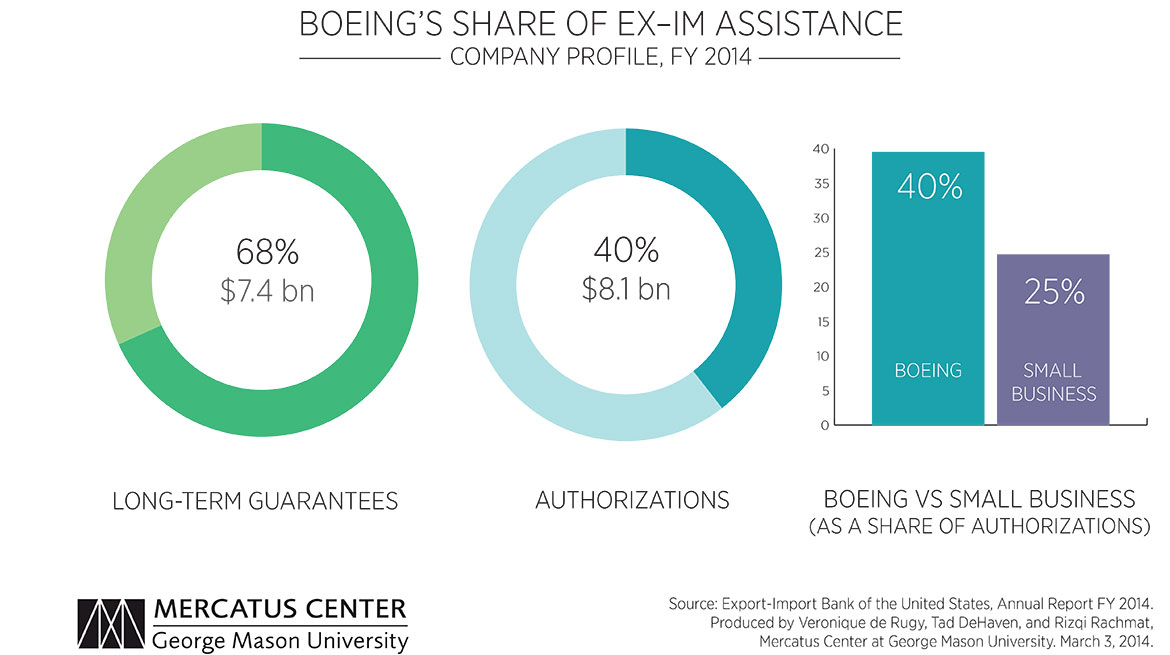Keep the Ex-Im Bank Dead
The Export-Import Bank, which aids U.S. exporters by loaning funds to foreign buyers of U.S. goods, could be resurrected from the dead by the end of the week.
Last month the bank’s charter expired after a nearly two-year fight to avoid reauthorization by free-market Republicans. However, their efforts could be for nothing because of Senate Majority Leader Mitch McConnell’s (R-KY) decision to allow an amendment that would reauthorize Ex-Im as part of an essential bill to fund the highway trust fund for the next six years.
The highway bill’s next stop is the House of Representatives, where Majority Leader Kevin McCarthy (R-CA) has vowed to block any amendment, including Ex-Im reauthorization. However, McCarthy’s promise should be taken with a grain of salt. Until a few days ago, McConnell was also promising his colleagues that a vote on the bank’s charter would not be tied to the highway bill. The House is a notoriously tumultuous body, and, by the end of the week, Ex-Im could have a vote.
Even if Ex-Im is not tied to the fate of the highway bill, the fight over the bank is unlikely to end anytime soon. Its proponents will keep struggling for reauthorization until the bank ceases nearly all of its currently ongoing operation. For many large companies, potential profits are at stake. When corporate wallets are compromised, large armies of lobbyists are always mobilized accordingly.
The Ex-Im Bank was founded in 1934. As well as lending money to buyers of U.S. products, it offers insurance to U.S. suppliers of loans to foreign buyers. In 2013, Ex-Im authorized $27.3 billion in direct loans, loan guarantees, and credit insurance. According to the CBO’s “Fair Value” accounting method, the bank is expected to cost taxpayers $2 billion over the next decade.
Ex-Im’s supporters claim that the bank is necessary in order to level the playing field for American businesses, especially small ones, going up against foreign multinationals. They say that without Ex-Im, American exports, and by extension the economy with it, would suffer. But Ex-Im is a perfect example of everything wrong with Washington’s involvement the economy.
Instead of aiding small companies that might genuinely need help, the Ex-Im bank gives most of its loans to customers of large multinational corporations that do not need aid to compete globally. In 2014, Boeing received 40 percent of Ex-Im’s loan authorizations, while small businesses received only 25 percent. Leaders from all over the political spectrum, from Senators Rand Paul (R-KY) to Bernie Sanders (I-VT), claim that Ex-Im’s sole job is to provide corporate welfare, and they are not far from the truth.

Some Ex-Im supporters argue that even if the bank’s main function is corporate welfare, it is still necessary because without it American exports would collapse. This is patently false. Ninety-eight percent of US exports do not rely on Ex-Im Bank, and almost all of the two percent that do could obtain financing elsewhere. Many, such as Boeing and Caterpillar, are so large that they have their own financing services that could easily provide loans to foreign buyers of their goods. It makes no sense for taxpayers to take on the risk of financing sales when Ex-Im beneficiaries can do it on their own.
Perhaps the most compelling argument for reauthorization is that the United States is “unilaterally disarming” by killing Ex-Im, while other states are planning to keep their own versions of the bank to aid their exporters. The problem with this assertion is that only a third of Ex-Im loans are explicitly used to compete against “unfair” foreign competition.
Vox’s Matt Yglesias argues that deauthorization by the United States could allow other states to get rid of their own banks. Without Ex-Im constantly threatening their exporters, other countries would have the ability to stop handing out subsidies that they do not want to be giving in the first place.
Last summer Kevin McCarthy said that Ex-Im is “something government does not have to be involved in. The private sector can do it.” As the July 31st deadline for the highway bill approaches, supporters of free markets should hope that McCarthy holds true to his beliefs and that a vote on Ex-Im never reaches the House floor.
Patrick Holland is a contributor for Economics21. Follow Patrick on Twitter here.
Interested in real economic insights? Want to stay ahead of the competition? Each weekday morning, e21 delivers a short email that includes e21 exclusive commentaries and the latest market news and updates from Washington. Sign up for the e21 Morning eBrief.